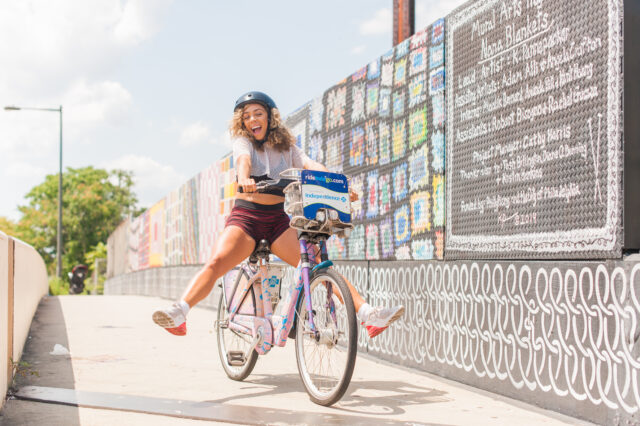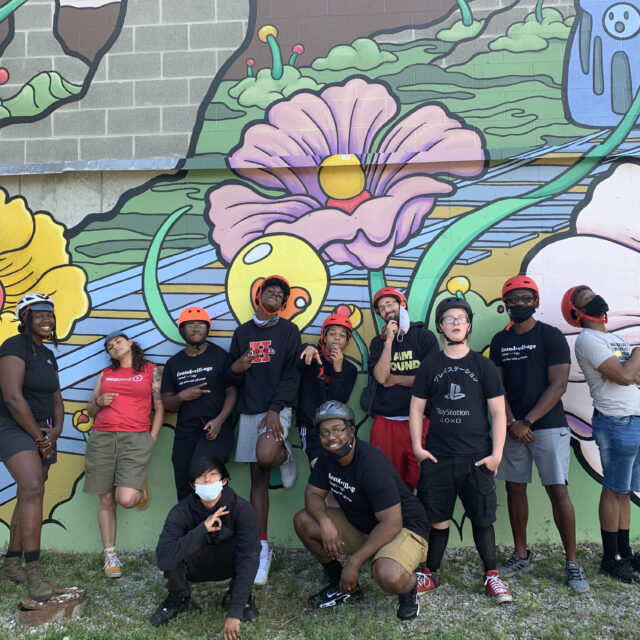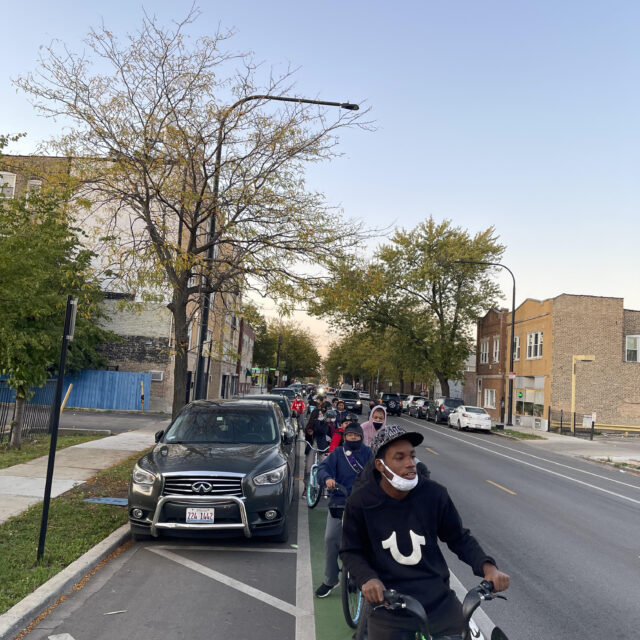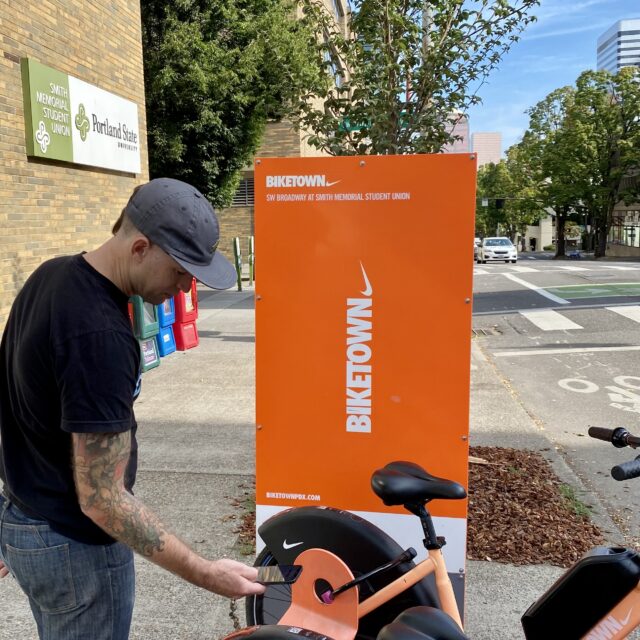Living Labs, a Year in Review
by Odochi Akwani, Writer and Content Manager
December 8, 2021
Five Better Bike Share Partnership grantees are halfway through multi-year equity projects. Learn what’s been accomplished thus far and what’s still to come.

Photo credit: Jasmine Alston
As 2021 comes to a close, so does the first year of our Living Labs program. Back in January, BBSP selected five cities to be “Living Labs,” or a testing ground for innovative, equitable solutions in bike share. Tasked with breaking down barriers to riding, specifically for BIPOC communities, the Living Labs are well on their way to producing new lessons and replicable programs. While the colder weather means a slower season for most systems around the country, these five projects—funded for two and a half years total—are just getting started.
In Philadelphia, our original Living Lab, the neighborhood expansion of Indego bike share and deep community engagement around it are the top priority. Philly recruited seven community expansion liaisons to help connect with residents and guide new station placement, and they achieved a lot despite the ongoing pandemic. One factor behind the success of Philly’s ambassadors is that they’re not myopic in their scope. It’s never just about bicycling. Their community outreach and engagement efforts not only offer discounted Indego bike share passes and bicycle skills courses, they also provide essential resources, such as masks and food for those in need. Philly also used Living Lab funding to launch a Wheels to Work program, a four-week training course for adult job seekers that combines workforce development with learning about bicycling.
In our Cincinnati Living Lab, its bike share system, Red Bike, is working to attract more people to bike share through youth programming and by using art as a means to engage people around a planned 2022 expansion. In 2021, Red Bike formed new partnerships with community-based organizations Groundwork and MOBO. As a result, youth are being trained as bicycle mechanic apprentices and have learned how to navigate their city on two wheels via group rides. In order to manage its Living Lab work, Red Bike hired two new staff members who are busy connecting new people to its low-income GO Pass program and managing the weekly youth bike rides.
In Detroit, MoGo bike share’s project is all about building a bike-to-bus connection, seamlessly integrating transit and bike share. Like Cincinnati, MoGo also hired new staff to help manage its Living Lab program. As a result, the organization has been able to reach hundreds of bike share and bus users in the city in order to learn more about people’s mobility choices, habits, and needs. New staff worked with Wayne State University to develop a survey and partnered with Transit App to administer it. Impressively, MoGo received more than 700 responses to its survey. New staff is also working hard to administer on-board rider surveys to bus riders. The results of these surveys will help MoGo understand the behavior of bike share and transit users and will inform the creation of several pilot projects in 2022.
In Portland, Oregon, the Portland Bureau of Transportation (PBOT) rolled out its Prescribe-a-Bike program, which allows local community health workers to prescribe Biketown electric bikes as medicine. As a result of extensive planning and coordination with the Multnomah County Health Department and with two local clinics, PBOT is on track to meet its goal of fifty program participants by the end of the year. One new connection for 2021 has been with Multnomah County School health centers, where staff has been able to engage with 17 and 18-year-olds around bike share. PBOT’s Living Labs project team has also worked to further break down barriers to bicycling by providing free memberships for college students and low-income users, as well as by securing Biketown stations near the health clinics where the Living Lab work is taking place.
Chicago is unique among our Living Labs, as it’s the only location where we’ve partnered with an organization that does not operate the city’s bike share system (Divvy). The Northwest Center, a nonprofit based in the Belmont Cragin neighborhood, is empowering youth to design and roll out an educational campaign that will focus on bikes as a way to connect the neighborhood to other transit options, jobs, schools, and one another. In 2021, the Northwest Center broadened its outreach and engagement efforts to ensure residents are aware of and able to access new Divvy bike share stations and newly installed bike lanes. Youth leaders now ride Divvy bikes to council meetings and around the neighborhood, serving as bike share ambassadors. In addition, the center is working to understand and change negative mindsets around bicycling through group rides, engaging elected officials, facilitating conversations with drivers, and canvassing residents.
Looking ahead, we are excited to see how often the hundreds of new discounted pass holders are riding in Northwest Chicago and Cincinnati, as well as how residents in Philly used their Wheels to Work training to access jobs using Indego bike share. In Portland, we hope to see residents benefitting from their new bike share prescriptions and we can’t wait to share what Detroit does to improve bus and bike integration.
Stay tuned for more stories about each Living Lab in 2022. Until then, BBSP wishes you a wonderful winter season.
Have a question about our Living Labs? Email tangier@peopleforbikes.org.



